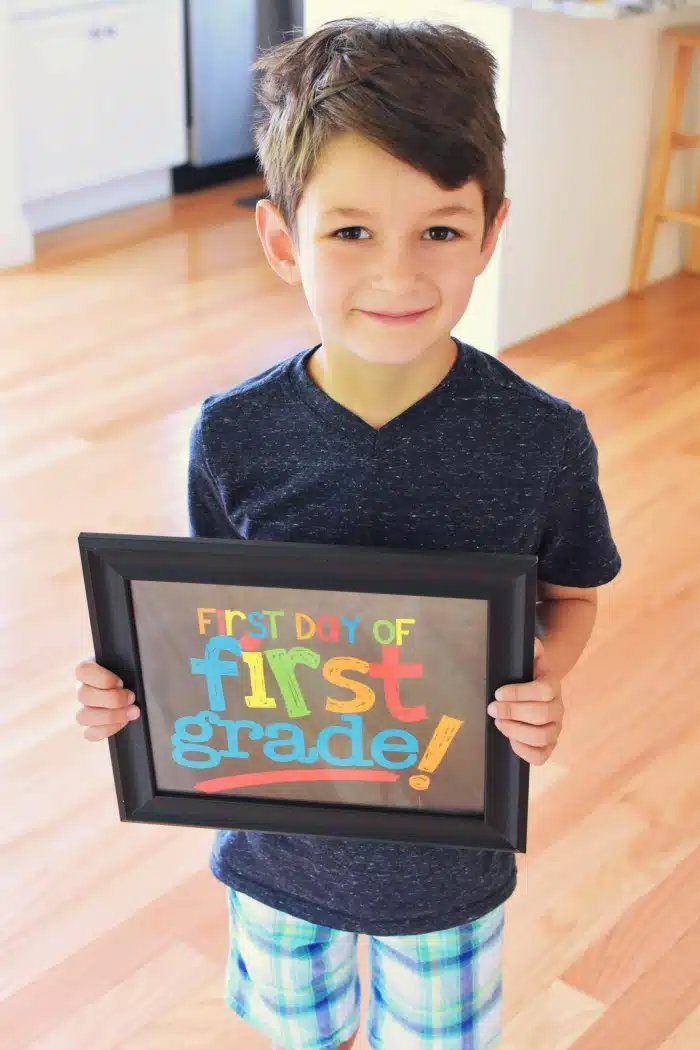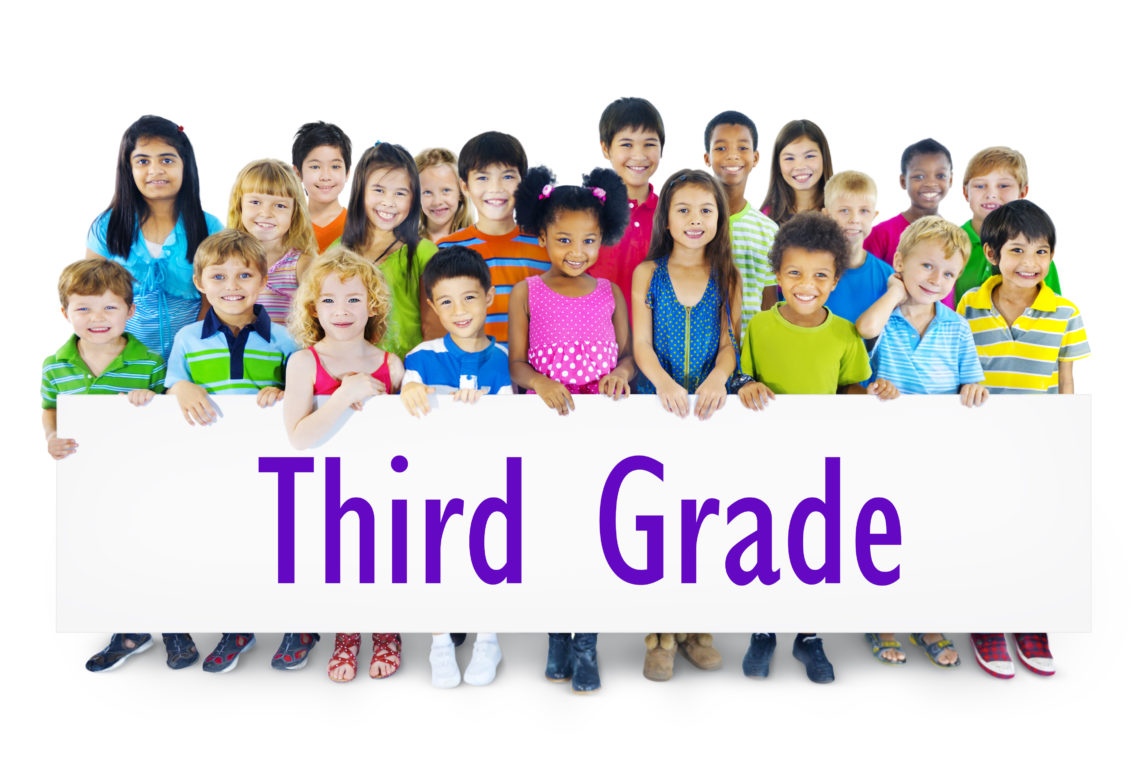
Supporting Your Rising First Grader

- Continue to build your child’s independence over the summer. Kindergarten teachers spend a lot of time building students’ independence, so by continuing this work over summer break, families will help their child be prepared for the responsibilities of first grade, such as managing personal belongings and daily transitions, as well as build their self-confidence. Let your child take on tasks such as preparing a simple meal, dressing themselves, packing their camp bag, and cleaning their room.
- Follow your child’s lead when it comes to talking about first grade. It’s normal for kids to have a wide range of reactions about the transition to first grade. Some may express apprehension over summer break, while others may not bring it up at all. Follow your child’s lead when it comes to discussing the upcoming school year.
- If your child expresses concern about first grade, believe and validate them—but don’t try to fix it. It can be tempting to want to erase your child’s worries about a new experience, but early childhood experts agree that the best approach is to give them a safe place to express what’s on their mind. Start by saying, “Tell me more,” to get a better sense of what the child is worrying about, then follow up with phrases such as, “That’s interesting,” or, “I wonder what you’re thinking about that.” You can follow up by telling your child stories about when you went through new experiences as a child (including your feelings and what helped), as hearing stories from loved ones helps normalize what children are experiencing. (And if your student is having trouble expressing themselves to you, encourage them to share worries with a stuffed friend.)

- Walk nervous children to class during the first week. For those who are especially nervous to start first grade, have a trusted grown-up walk them to class during the first few days of school to provide a layer of comfort and support. (Rowland Hall parents should be clear this is a temporary step while the child gets used to a new school arrival routine.)
- Communicate with your child’s first-grade teacher. First-grade teachers understand that this transition can be hard on kids and parents alike. Know that educators view families as team members and have your child’s best interest at heart. They will share how to reach out to them during the school year and families are encouraged to use those lines of communication when they need support or have questions.
- Take comfort in knowing that your child will be fine—and will grow as a learner. Remember that going through changes and experiencing new challenges are an important and normal part of child development. No matter what emotions may arise for your child (or yourself!) during the transition to first grade, remember this is an exciting step in your child’s learning journey—and that new adventures cultivate growth, self-discovery, and newfound capabilities in children.
3rd grade transition: Going from learning to read, to reading to learn
3rd grade is a big year for reading, writing and math. 
In 2nd grade, kids spend a lot of time focusing on “decoding:” sounding out words that are unfamiliar. It takes a lot of brainpower for a child to figure out what a word actually says. By 3rd grade, children are expected to decode words automatically. They’re expected to comprehend what’s being read. Reading and writing will become a bigger part of every subject— including math and science. And in math, there’s a similar jump in expectations to the one in reading. In 1st and 2nd grade, kids are learning how to add and multiply single-digit numbers. These calculations take a lot of brainpower. But in 3rd grade, they’re expected to know these sums and products by memory, so they can shift their brainpower to more complex problem solving.
When you think of “transition” years, the first year of middle school and freshman year of high school may come to mind (and make your heart flutter a little) but 3rd grade is a milestone year too!
Why is 3rd grade so important?
1. The focus shifts from learning to read, to reading to learn.
So far in school, your child has spent a lot of time “decoding words”—sounding out words that are unfamiliar. It takes a lot of brainpower for a child to figure out what a word actually says.
But in 3rd grade, teachers expect kids to decode words automatically. Students have to quickly comprehend what they’re reading.
And reading comprehension is integrated into every subject—even things like math tests!
“If kids are still trying to decode words in 3rd grade, they don’t have enough brainpower left to comprehend what’s being read,” explains Ronda Arking, Director of Language Arts at Sylvan. “Your child has to read text over and over again to understand it.”
This can place a big burden on kids for schoolwork and for taking tests. Homework can take a lot longer and be more of a struggle because your child isn’t caught up to where they need to be.
It’s important to make sure your child’s reading skills are on track.
 2. Third grade gives you a peek into the future.
2. Third grade gives you a peek into the future.
It’s possible to predict (with surprising accuracy) which kids are going to struggle through the rest of their school careers and even drop out of high school based on their reading ability in 3rd grade.
A study shared through the American Educational Research Association says:
A student who can’t read on grade level by 3rd grade is 4x less likely to graduate by age 19 than a child who does read proficiently by that time.
3. A pivotal year for writing is 3rd grade.
The writing requirements in 3rd grade often catch parents off guard. Kids are expected to write a lot more—including multi-paragraph essays.
The irony is, in many teachers don’t have enough time during the school day to teach the strategic writing process in detail. The result? Writing struggles can really become apparent in 3rd grade!
There’s a relationship between your child’s ability to read and their ability to write. Children can’t write beyond the ability that they have for reading. This means that if kids are struggling with reading, then they will certainly struggle with writing multi-paragraph essays.
But even if your child IS a strong reader, your child may not have gotten the writing instruction they need. You may need to take proactive steps to supplement what’s being done in school.
4. In 3rd grade math, the focus changes to “automatic recall.”
In 1st and 2nd grade, kids are encouraged to use their fingers and other counting strategies to add and multiply numbers. But by 3rd grade, these calculations need to be automatic. If kids are still using counting strategies to add and multiply single-digit numbers, they don’t have enough brainpower left over to solve complex problems. If you child doesn’t know 2+2 is 4, they are not going to be able to solve 52+72. “Think about your drive into work this morning,” explains Cortnee Berrill, Manager of Mathematics at Sylvan. “You adjusted your seat and mirrors, buckled your seatbelt and checked your surroundings. There was a lot you did before you even started the car. Once you started driving, you were concentrating on everything you did. When you get in the car, it’s like being on autopilot. These things are automatic to you. Math facts need to be as automatic to children as driving into work is for us.”
Click here to check out resources with more information on math facts and fun strategies to support your scholar.
Tips to help your child with the 3rd grade transition:
- Practice math facts to strengthen your child’s memory any time you’re with your child, from car rides, to waiting at the doctor’s office. Your child should be able to automatically add single-digit numbers with sums up to 20 and multiply single-digit numbers by memory.
- Make it fun. Look for “math fact” game apps for your smart phone, use flash cards or play board games that involve adding dice. Check out these fun math fact game ideas!
- Encourage your child to read every day. If you have been reading to your child, change roles and have your child read to you.
- Encourage your child to keep a daily journal. It can be as short and simple as answering: “What’s the best thing that happened to me today?” Journaling is a great way for kids to build confidence with writing.
- Set a good example and model the behaviors you want from your child. For example, turn off your electronic devices during dinner or family time, or whenever you’re trying to connect. Read a book or write a note or journal entry.
- Make sure your child’s skills are on track. Don’t wait for parent-teacher conferences or report cards to discover your child has some skill gaps. It’s much easier to stay on pace with class, rather than chasing after the class to catch up. Request an assessment from your child’s school to help you accurately identify your child’s skills in comparison to developmental appropriate norms. This will help you determine and where to focus your energy.
- Explore supplemental resources to strengthen skills. Your options range from online skill-building games, to tutoring. Sylvan offers a variety of math, reading and writing programs to help children dramatically improve their skills and confidence. We love helping kids go from, “I hate writing,” to, “Maybe I’ll be a writer some day!”

